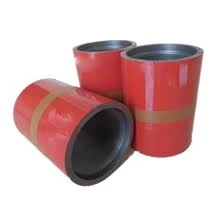- Afrikaans
- Albanian
- Amharic
- Arabic
- Armenian
- Azerbaijani
- Basque
- Belarusian
- Bengali
- Bosnian
- Bulgarian
- Catalan
- Cebuano
- Corsican
- Croatian
- Czech
- Danish
- Dutch
- English
- Esperanto
- Estonian
- Finnish
- French
- Frisian
- Galician
- Georgian
- German
- Greek
- Gujarati
- Haitian Creole
- hausa
- hawaiian
- Hebrew
- Hindi
- Miao
- Hungarian
- Icelandic
- igbo
- Indonesian
- irish
- Italian
- Japanese
- Javanese
- Kannada
- kazakh
- Khmer
- Rwandese
- Korean
- Kurdish
- Kyrgyz
- Lao
- Latin
- Latvian
- Lithuanian
- Luxembourgish
- Macedonian
- Malgashi
- Malay
- Malayalam
- Maltese
- Maori
- Marathi
- Mongolian
- Myanmar
- Nepali
- Norwegian
- Norwegian
- Occitan
- Pashto
- Persian
- Polish
- Portuguese
- Punjabi
- Romanian
- Russian
- Samoan
- Scottish Gaelic
- Serbian
- Sesotho
- Shona
- Sindhi
- Sinhala
- Slovak
- Slovenian
- Somali
- Spanish
- Sundanese
- Swahili
- Swedish
- Tagalog
- Tajik
- Tamil
- Tatar
- Telugu
- Thai
- Turkish
- Turkmen
- Ukrainian
- Urdu
- Uighur
- Uzbek
- Vietnamese
- Welsh
- Bantu
- Yiddish
- Yoruba
- Zulu
Stainless Steel Pipe Coupling Solutions for Efficient Connections and Durable Performance
Understanding SS Pipe Couplings A Comprehensive Guide
In various industries, the significance of piping systems cannot be overstated. Among the many components that make up these systems, pipe couplings play a crucial role in ensuring a secure and efficient connection between two or more pipes. This article focuses on SS (Stainless Steel) pipe couplings, examining their features, advantages, applications, and maintenance practices.
What Are SS Pipe Couplings?
SS pipe couplings are fittings designed to connect two pipes, allowing for a seamless flow of liquids or gases. Made from stainless steel, these couplings are resistant to corrosion, rust, and extreme temperatures, which makes them an ideal choice in environments where durability and reliability are paramount. The coupling can take various forms, such as threaded, welded, or slip-on, depending on the specific requirements of the application.
Features and Advantages of SS Pipe Couplings
One of the primary advantages of using stainless steel for pipe couplings is its exceptional corrosion resistance. Unlike other metals, stainless steel does not easily corrode or tarnish, which is essential for maintaining the integrity of piping systems, especially in industries like pharmaceuticals, food processing, and chemical manufacturing. Additionally, stainless steel couplings can withstand high pressures and extreme temperatures without compromising their structural integrity.
Another noteworthy feature is the versatility of SS pipe couplings. They can be manufactured in various sizes, shapes, and grades to suit different applications. From small residential plumbing to large industrial systems, stainless steel couplings can adapt to various needs. Moreover, they require minimal maintenance, making them a practical long-term investment.
Applications of SS Pipe Couplings
ss pipe coupling

The applications of SS pipe couplings are vast, spanning multiple industries. In the oil and gas sector, they are often used to connect pipelines in refineries and offshore drilling platforms. In the food and beverage industry, stainless steel couplings ensure hygiene and safety, given that they do not harbor bacteria or pathogens. Additionally, they are instrumental in HVAC systems, water treatment plants, and waste management.
The pharmaceutical industry also heavily relies on stainless steel couplings, as they meet strict sanitary standards and are easy to clean. Their durability under extreme conditions makes them ideal for high-pressure steam and chemical processes.
Maintenance of SS Pipe Couplings
To ensure optimal performance, regular maintenance of SS pipe couplings is recommended. While stainless steel is resistant to corrosion, it can still develop surface stains or scale from mineral deposits over time. Routine cleaning with appropriate non-corrosive cleaners can help maintain their appearance and functionality.
It is also essential to inspect the couplings for any signs of wear or damage, especially in high-pressure applications. Promptly addressing any leaks or weaknesses can prevent larger issues down the line, ensuring the longevity of the piping system.
Conclusion
In summary, SS pipe couplings are integral components of piping systems across various industries. Their durability, versatility, and resistance to corrosion make them a preferred choice for ensuring efficient and reliable connections. By understanding their features, applications, and maintenance needs, businesses can make informed decisions that enhance the performance and lifespan of their piping systems, ultimately leading to smoother operations and reduced downtime. Whether in industrial settings or residential applications, investing in quality stainless steel pipe couplings is a step towards ensuring a reliable and efficient piping infrastructure.
-
Tubing Pup Joints: Essential Components for Oil and Gas OperationsNewsJul.10,2025
-
Pup Joints: Essential Components for Reliable Drilling OperationsNewsJul.10,2025
-
Pipe Couplings: Connecting Your World EfficientlyNewsJul.10,2025
-
Mastering Oilfield Operations with Quality Tubing and CasingNewsJul.10,2025
-
High-Quality Casing Couplings for Every NeedNewsJul.10,2025
-
Boost Your Drilling Efficiency with Premium Crossover Tools & Seating NipplesNewsJul.10,2025







